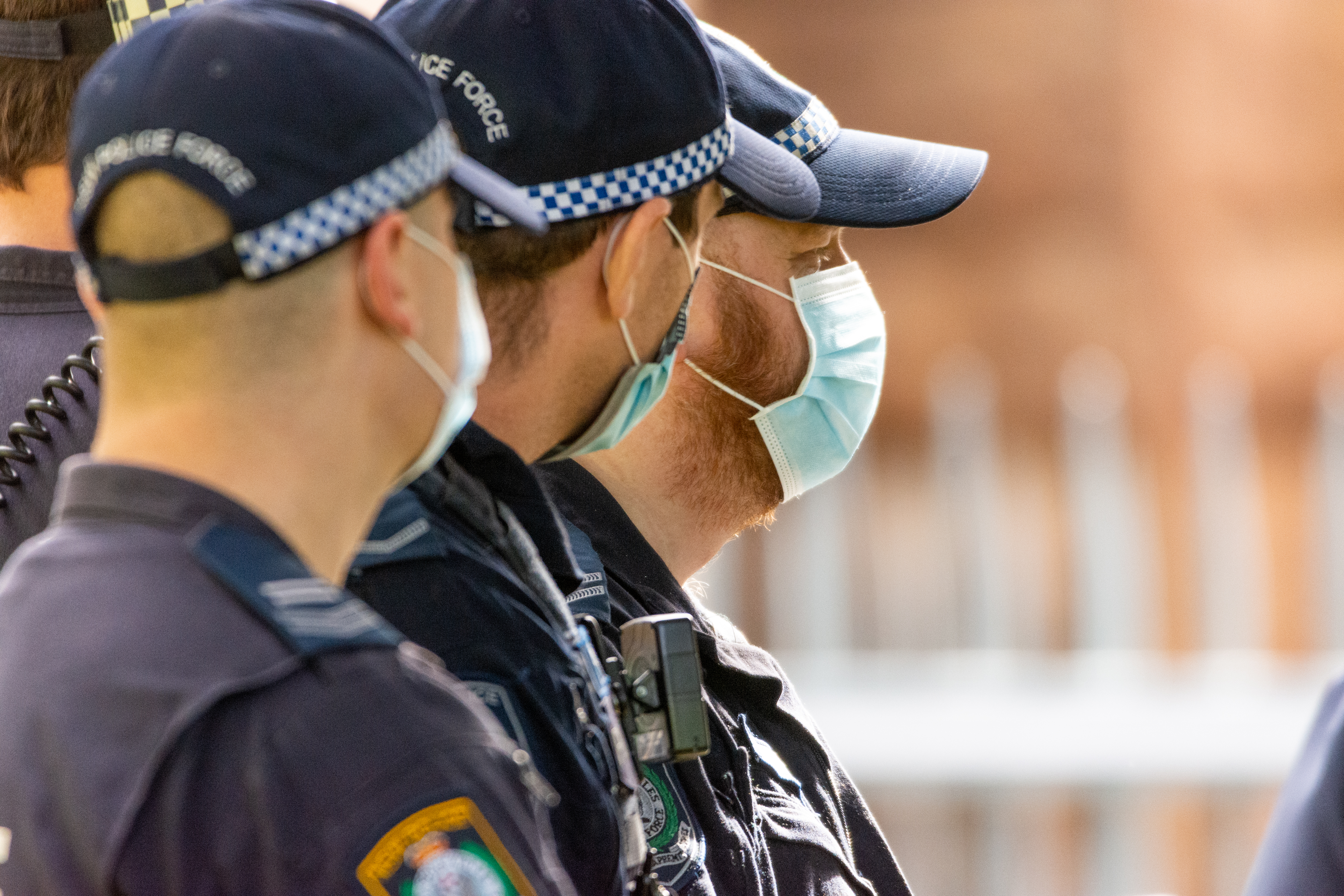Share This Article
Poppy Morandin and Jimmy Singh.
A young man shot dead by Queensland Police on the Logan Motorway has been linked to the murder of an elderly couple in their Brisbane home.
After the bodies were discovered, officers attended to doorknocking neighbouring homes in the Parkinson area to determine whether there were any more victims.
The offence has been labelled a ‘terrorism event’ and the pair are believed to have been targeted randomly.
The man, 22-year-old Raghe Abdi, was confronted by police after he removed a GPS tracking device he had been ordered to wear as a bail condition.
Mr Abdi was known to counter-terrorism police, due to his supposed support of the Islamic State.
In 2019, he was stopped from leaving Brisbane to travel to Somalia and was subsequently arrested on suspicion of an attempted foreign incursion.
He was released without charge, due to insufficient evidence, but had his passport cancelled.
In June 2019, he was charged with further offences including attempting to pervert the course of justice and refusing to hand over the passcode to his mobile phone.
Pursuant to section 3LA of the Crimes Act 1914 (Cth), a constable may apply to a magistrate for an order to get a person to provide any information or assistance that is reasonable and necessary to allow a constable to allow them to access data stored on “a computer or data storage device”, among other actions in certain circumstances, where computer or data storage device is found on a warrant premises or in the course of an ordinary search of a person, or a frisk search authorised by a warrant.
Upon the application being successful, failure to comply with the order carries up to 5 years imprisonment and/or $66,600 fine. If the offence to which the relevant warrant relates is a serious offence or serious terrorism offence, the maximum penalty is $133,200 fine and/or 10 years behind bars.
Abdi was remanded into custody, after refusing to comply and provide his passcode, and spent nearly a year behind bars before being granted bail in September 2020.
He had been fitted with a GPS tracking device, which he removed the night before the shooting, triggering an alert to authorities.
Reports had been made to officers that a man was walking alongside the Logan Motorway and acting as a hazard to drivers early in the morning.
Abdi was confronted by police, and threatened them with a knife, before being shot.
Queensland Police Deputy Commissioner Tracy Linford described how Abdi shouted “Allahu Akbar” before he was shot by officers.
Whilst officers attempted to perform first aid, he died at the scene.
The link to the death of the elderly couple was found within an ‘item’ belonging to the pair being found on Abdi’s body at the scene, and other ‘items’ believed to have belonged to Abdi, being found at the couple’s residence.
The Ethical Standards Command is currently investigating the shooting of Abdi, with oversight by the Crime and Corruption Commission.
“There are occasions when lethal force is the only option available to the police,” commented Ms Linford.
From 1989 – 2011, there have been 105 people fatally shot by police, with studies revealing that in 42% of incidents “the deceased had been identified as having some form of mental illness”.
Law on How Much Force Police Can Use in NSW
In NSW, police officers may exercise force ‘as is reasonably necessary’ to exercise their lawful powers, pursuant to section 230 of the Law Enforcement (Powers and Responsibilities) Act 2002 (NSW).
Furthermore, police officers who exercises a power to arrest another person may use such force as is reasonably necessary to make the arrest or to prevent the escape of the person after arrest, pursuant to section 231 of the Law Enforcement (Powers and Responsibilities) Act 2002 (NSW).
Factors that shape what is considered ‘reasonable’ includes considerations of a suspect’s age, gender, size, fitness, and skill level compared to that of the officers present, as outlined by NSW Police’s Tactical Options Model.
If a use of force is deemed to be ‘excessive’, an officer’s actions may be found unlawful, thus leaving them open to charges, similar to any normal citizen.
Police Brutality or Excessive Force Used by Police
If police have used excessive force (more force than is reasonably necessary) while carrying out a lawful duty of arrest or search, you may lodge a complaint to the Law Enforcement Conduct Commission (LECC).
In the event a police officer has used unlawful force, he/she can be subjected to assault charges in NSW. In addition, you may also be able to sue the NSW Police force for compensation in civil proceedings.
To preserve any evidence as to the extent of brutality or force applied on you by police, try to take photographs of any injuries sustained, attend your GP or hospital who will create a medical report outlining their observations and views, which can then be used in your claim against Police.
Have a question? call our Criminal Lawyers Sydney branch today to arrange a consult.
Book a Lawyer Online
Make a booking to arrange a free consult today.
Call For Free Consultation
Call Now to Speak To a Criminal Defence Lawyer
Over 40 Years Combined Experience
Proven SuccessAustralia-Wide
Experienced LawyerGuarantee
 (02) 8606 2218
(02) 8606 2218
 (02) 8606 2218
(02) 8606 2218














